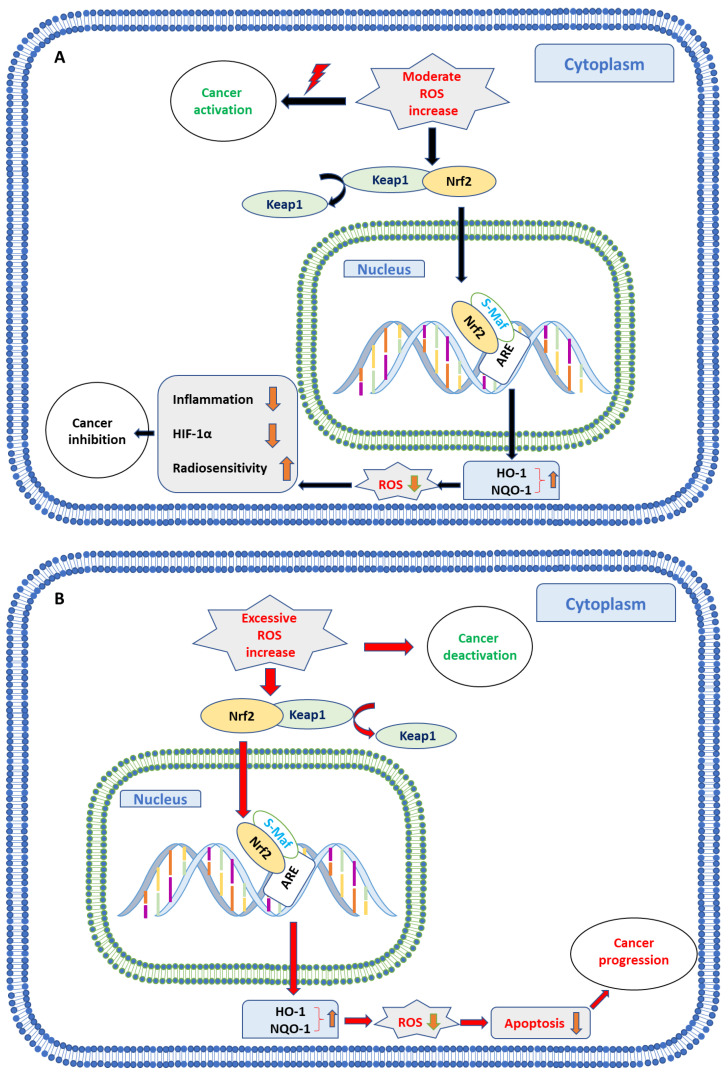Figure 1.
Double role of ROS in cancer cells. Increased ROS dissociates Keap1 and Nrf2, resulting in the translocation of Nrf2 and s-Maf to ARE in the nucleus which activates antioxidant enzymes such as HO-1 and NQO-1. Initial moderate ROS increase (A) is related to cancer development and progression, whereby elevation of HO-1 and NQO-1 downregulates ROS, subsequently blocks inflammatory processes, inactivates HIF-1α and induces radiosensitization. An initial excessive ROS level (B) causes toxic effects and apoptosis, whereby a decrease of ROS by HO-1 and NQO-1 protects cancer cells from oxidative toxicity, enhancing survival and invasive capability.

